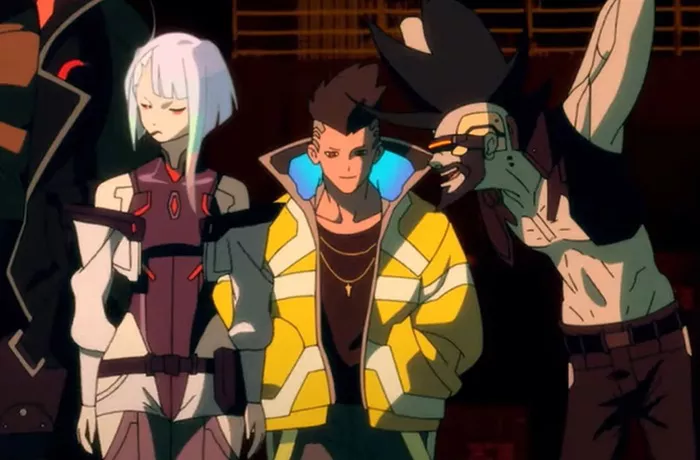In the realm of storytelling, the classic hero-versus-villain trope often concludes with the hero’s victory, restoring order after a tumultuous struggle. However, anime has explored the darker narrative where villains achieve their sinister goals, leaving audiences shocked and engaged. Here are ten notable series where the antagonists emerge victorious or leave a lasting impact, defying traditional expectations.
1. Cyberpunk Edgerunners: The Resilience of Evil
Set in a dystopian future, Cyberpunk Edgerunners features the street kid David Martinez navigating a world dominated by powerful corporations like Arasaka and Militech. Despite the ongoing conflicts resulting in significant losses, both corporations continue their operations, highlighting that malevolence endures.
2. Neon Genesis Evangelion: SEELE’s Near Success
In Neon Genesis Evangelion, the secretive organization SEELE devises a plan called Instrumentality, aiming to merge humanity into a single consciousness. While they nearly achieve this goal through catastrophic events, it ultimately falters due to protagonist Shinji’s rejection of their vision for collective unity.
3. Code Geass: Lelouch’s Dark Heroism
Lelouch Vi Britannia from Code Geass employs cunning and manipulation to challenge his father and unite the world against the Britannia Empire. His controversial tactics culminate in a noble sacrifice, allowing him to fulfill his vision of peace through a villainous persona.
4. Shaman King: Asakura Hao’s Ambivalence
In Shaman King, Asakura Hao, a reincarnated villain with immense power, initially seeks to eradicate humanity to create a world for shamans. However, he ultimately chooses not to destroy humanity, illustrating a complex struggle between his desires and moral considerations.
5. Devilman Crybaby: The Tragic Fate of Satan
In this dark fantasy, Devilman Crybaby depicts Ryo Asuka, who embodies Satan, as he grapples with his disdain for humanity. The series concludes with him losing everything he cared for, reinforcing the idea that even a seemingly victorious figure can end in profound solitude.
6. Pokémon: Giovanni’s Ongoing Threat
Giovanni, the leader of Team Rocket in Pokémon, represents a persistent criminal force despite his failures to dominate the world. The continual escapades of Team Rocket suggest that their ambitions remain unresolved, leaving them a lingering threat.
7. Demon Slayer: Mugen Train: The Death of a Hero
In Demon Slayer: Mugen Train, the villain Akaza successfully kills the Flame Hashira Rengoku, marking a significant victory for the demonic forces. This act solidifies the notion that evil can triumph over noble heroes.
8. Hellsing Ultimate: The Major’s Chaotic End
The Major from Hellsing Ultimate embodies evil’s manipulative nature, seeking to create chaos reminiscent of Nazi Germany. Despite his eventual death at the hands of Integra, he dies with satisfaction, having instigated the chaos he desired.
9. Berserk: Griffith’s Betrayal
In the gripping saga of Berserk, Griffith’s shocking transformation into the demonic Femto through the sacrifice of his comrades reveals the depths of his ambition. This pivotal moment illustrates a complete moral collapse, leaving audiences reeling from his betrayal.
10. Attack on Titan: Eren Yeager’s Destructive Path
Eren Yeager’s actions in Attack on Titan lead to the near annihilation of the world outside Paradis Island. His journey from hero to villain encapsulates the complexities of morality, as he manipulates events to secure his vision, highlighting a profound sense of predestination and tragedy.
These series challenge conventional storytelling by portraying villains who not only achieve their goals but also resonate deeply within the narrative, making them memorable and impactful.
Related Topics
Dandadan: The 2024 Anime That Outshines Hollywood
Top 10 Anime Series Featuring Ghost Hunting
Top 5 Anime That Embrace Reincarnation Themes


